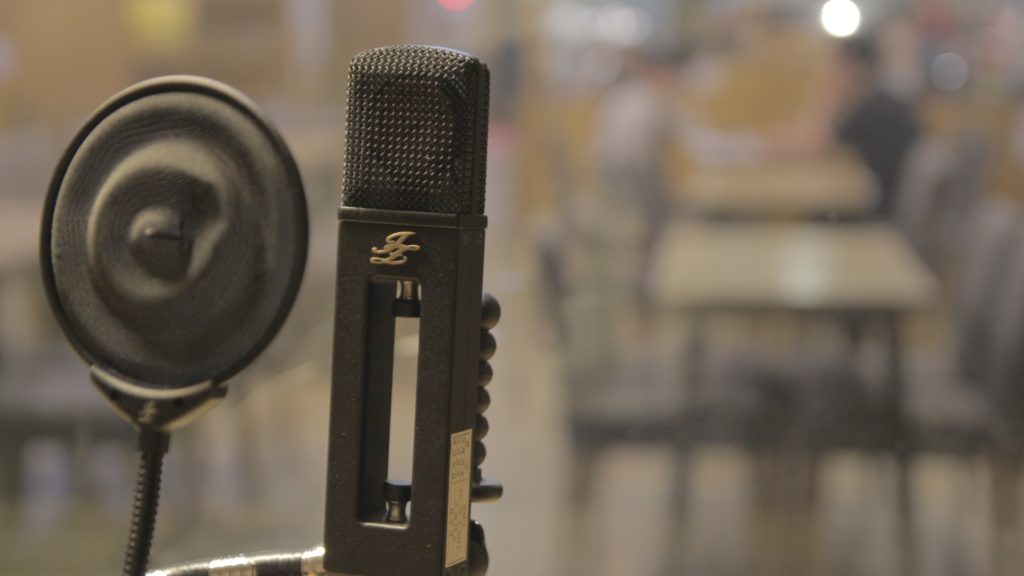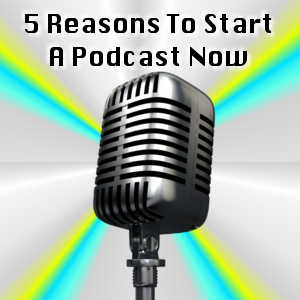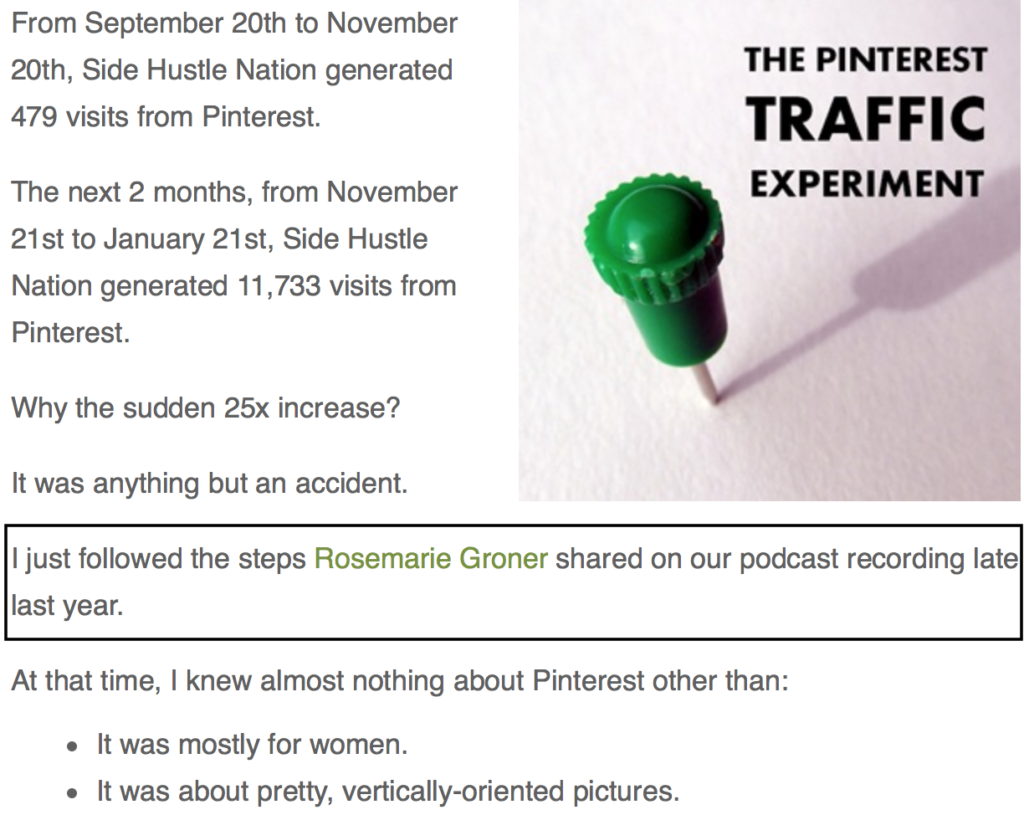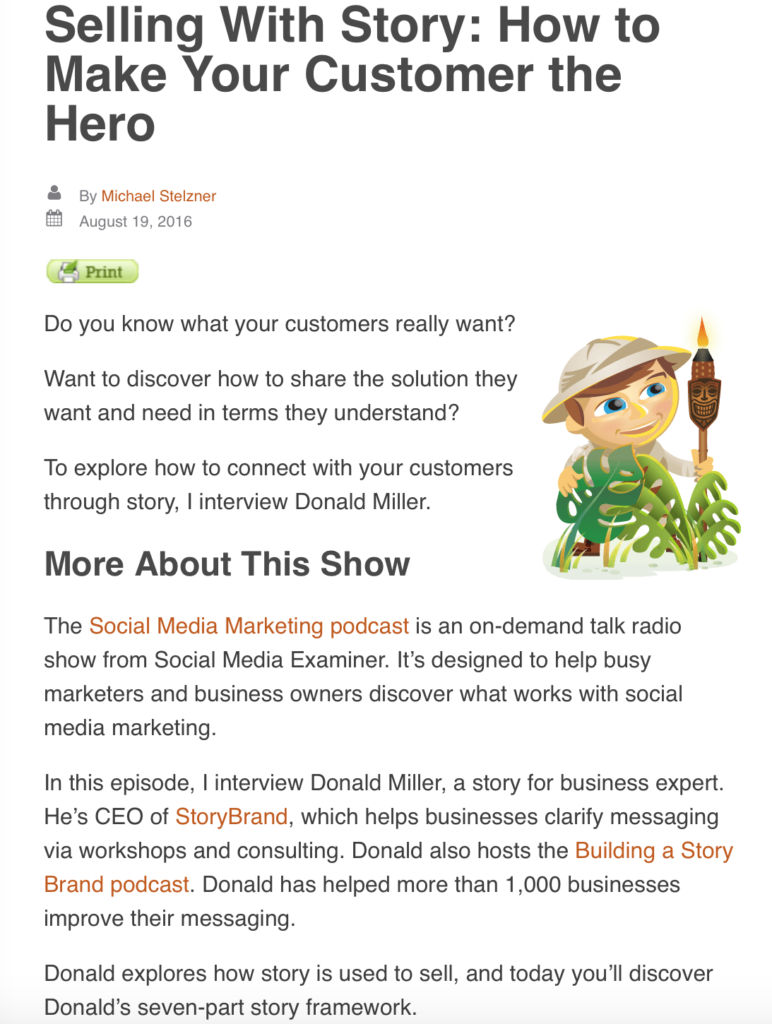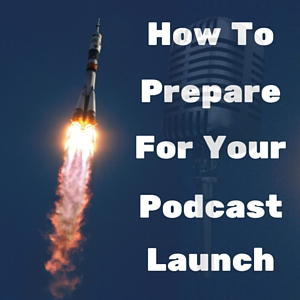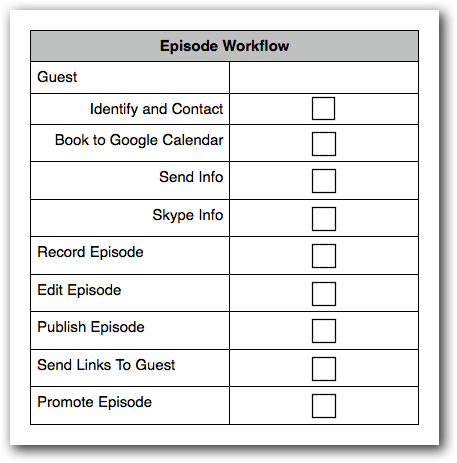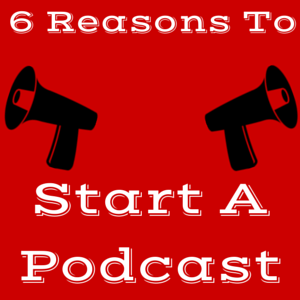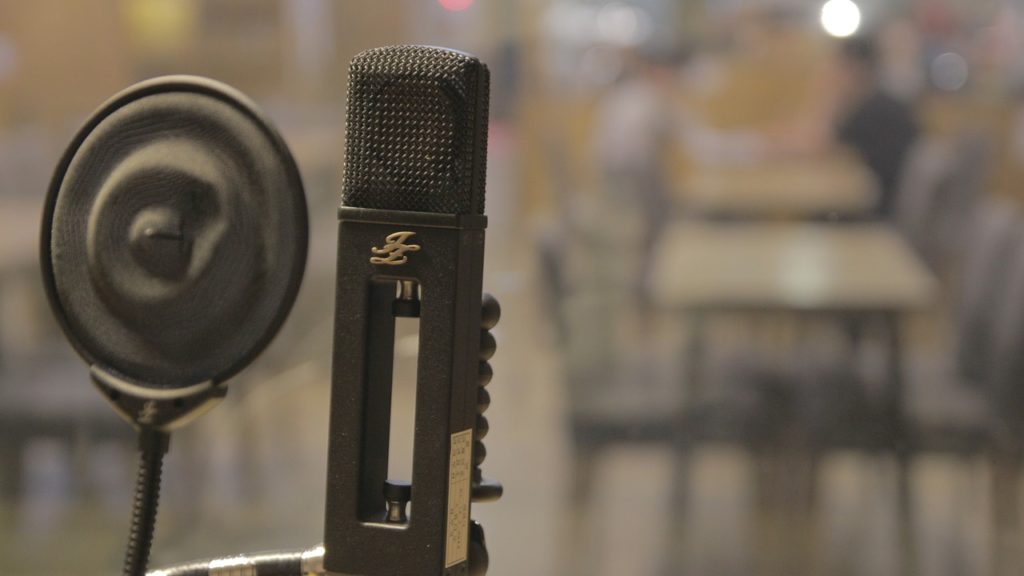 Hello everyone, I’m teenager entrepreneur Marc Guberti. In this post I’m going to share with you five different methods you can use to get more guests on your podcast.
Hello everyone, I’m teenager entrepreneur Marc Guberti. In this post I’m going to share with you five different methods you can use to get more guests on your podcast.
But before I get into that, I want to talk to those of you who haven’t yet started a podcast, but are thinking about it, and tell you why podcasts are so valuable.
One of my favorite things about podcasting is that I get free mentors.
Rather than pay for an expensive consultation session, you can interview someone, ask questions that are also your audience’s questions, and get the answers as well as more insight about your niche. So I find that really valuable.
You also get to build relationships with, as you scale your podcast, some of the most influential and successful people on the planet.
That is no understatement at all. Basically with a podcast, and you being able to interview all of these people, you are going to reach more people with your podcast. If you really scale this up, you could even have a chat with one of your role models.
Some people are able to land that interview on their very first episode. I would not recommend doing that because you’re going to feel a lot of pressure interviewing your role model. While that’s also just the nature of the game, I recommend conducting some interviews before you ask your role model if he or she is available for a podcast interview.
Finally, exponential authority.
I mean, I don’t know if you’ve seen other people with podcasts do this, but they’ll say stuff like, “I’ve had guests like so-and-so and this person and that person.” That gives you more authority by association. So if you associate yourself with authority figures in your podcast, you’ll increase your own authority as well.
So now that you know why podcasts are awesome, I’m going to talk to you about methods, beginning with the ‘contact me’ page.
This page works both ways: your ‘contact me’ page and your guest’s ‘contact me’ page. In the beginning, your contact me page is going to do little to nothing unless you already have a big audience.
So what you want to do on your guest’s ‘contact me’ page is tell them about your podcast and your past guests, if you have any; if you don’t, focus more on what your podcast is about. You should be doing this either way, but you should have a stronger focus on what your podcast is about if you still haven’t had any guests.
You want to make this a really short email, less than five sentences, because some of these people are very busy and they only have a few seconds to decide if this is the right opportunity for them. The ‘contact me’ page seems to be a universal page on most blogs. You can usually find it easily at the top of the blog. If you cannot find it, go into the search engine on that person’s blog and search for the words ‘contact me’ or ‘contact us’. You can also go to the very bottom of a blog to look for the contact me option.
As you continue to get more guests and you continue to build your authority, some people are going to contact you directly and ask if they can be on your show. Some of your fans may also suggest people who could be on your show. So in the beginning, you’re doing a lot of work by contacting people, but eventually people are going to be contacting you asking to be on your show, or giving you ideas of who could appear on your next episode.
The second way to get more guests from your podcast is to use Twitter.
I absolutely love using Twitter for the purpose of getting more guests on my podcast episodes. I find people in my niche who I want to engage with and then ask them via Twitter if they would like to appear on my podcast. The great thing about Twitter is that it’s just 140 characters; sometimes I’ll find myself sending two tweets to the same person to get my point across, but that’s still less than 280 characters, and people usually engage with their followers on Twitter.
Responsive users are looking to see who has mentioned them, so they will see your tweet request. And a lot of them will engage with that tweet. I mean, some people might say, “Unfortunately I can’t do it.” But other people will say, “Great. Where do we start?” Another thing I do is include my email address within these tweets.
Why? Because you can’t easily continue a conversation like this on Twitter. Once you have the person’s attention, you’ll now want it to go beyond 140 characters. You’ll want to send them your scheduling link, which you definitely want to keep private or else you’re going to get a lot of people that you don’t want to interview filling up your calendar.
Even if you don’t have a scheduling calendar, you don’t want to be talking about, “Oh, let’s do it at this time, this date,” on Twitter. That’s why I provide my email address within the tweets that I send to these people. As a bonus, if you are a verified user, you can filter and see all of the verified users who are following you. If you have a lot of verified users following you, you can go through them and see which ones you really want to have on your podcast, and then contact them.
The reason I like this method is because in order to be verified you’ve likely done something really cool. Maybe you have an incredible story, or expertise. These are the types of people you want as guests on your podcast. So that’s how you use Twitter in order to get more people on your podcast. It doesn’t matter if you have hundreds of thousands of followers or just a few hundred followers, you can use this method to get more people on your podcast.
The third way to get more guests on your podcast is through referral.
After you interview someone, ask that person if he or she can recommend anyone who would be a great guest for your podcast. This allows you to leverage your guests to build relationships that you couldn’t have built on your own. Some people are inaccessible to you but not the person you interviewed; that person can make the introduction.
This is an underrated method. It may not be the method that will get you the majority of your guests, but you can get a few really cool guests by asking every one of your guests, “Who would you like to see on my podcast? Who can you introduce me to?” The main rule I follow is to build as many relationships as possible. I like to follow the approach in which you build one meaningful relationship every single day.
So I build a lot of relationships without expecting anything in return. But sure enough, I get many things in return. I mean, I don’t go into the relationship with expectations. But I often engage with a new contact only to find that same person lending a hand a few months down the line, perhaps by saying, “I know this person who would be great for your podcast,” or, “I know someone who is looking for people to interview for his podcast.” So you never know what opportunities will open up when you start to build relationships; try to build one meaningful relationship a day and expect nothing in return.
The fourth way to get more guests for your podcast is to read books about your niche.
When you read books about your niche, it helps you build knowledge about your niche. That’s one of the most common reasons people say, “Read books.” But there are more benefits to reading books, especially when it comes to having your own podcast. What I’ve noticed is a lot of authors like to mention other authors and other people’s works within their own books. It’s a pattern I see a lot.
So with this pattern in mind, you can come across more people who would make for great guests on your episodes. Even if you can’t get the main author, you can go through that author’s book, see which books and authors he or she recommends, and then contact those individuals to see if they would like to be on your podcast. Plus, reading a book written by a guest on your podcast will greatly strengthen the interview.
What I like to do when I’m interviewing someone (and have read their book in advance) is underline key points found within their book. By doing that, I am able to bring up key points when I first contact them about being a guest, as well as formulate better questions once they agree to be a guest on my podcast. I don’t have to reread the book, I just focus on the important points I’ve already underlined.
If you get really good at reading books you could get through 10 books a month, and read as many books as possible from authors who have books on pre-order. You can say, “I have this podcast, I’d love to interview you about your upcoming book.” Some of them will send you a copy or a few chapters to help you formulate questions to make the interview better.
Authors with books on pre-order are the easiest people to get on your podcast because they are looking for more exposure at this specific moment of time. What these authors try to do is get a bunch of podcast interviews, or a bunch of guest posting opportunities all within less than four weeks from the time the book actually launches.
Getting high authority authors when they are in this pre-order stage will allow you to get more people later on because, as mentioned before, authority by association means you will be associated with some of these really successful authors (who you had contacted back when their books were on pre-order).
The final way to get more guests on your podcast, is to contact more people.
I mean, it sounds really simple. Contact more people, get more of them to say yes. But you need to contact more people in order to multiply your results. If you want to get more people on your podcast as guests, then instead of contacting five people, contact 10 people. By contacting twice as many people, in theory, you get twice as many guests for your podcast.
I like to make this a daily habit. I’ll contact at least three people a day for either a podcast appearance or a summit experience. This daily habit keeps me in check and makes it easier for me to contact different people and get interviews with them. So, with this habit, I contact over 1000 people in any given year. And if I get 33% of those people to say yes, I’ll have enough podcast material for an entire year. And if I do a weekly, rather than daily, podcast, I’ll have nearly 300 extra interviews that can be organized into summits.
I personally recommend not having too long of a queue. Let’s say you get 20 interviews for your podcast and you do an episode every week; that is unfair to guest number 20. So at that point you would increase the frequency in which you publish new episodes. It will challenge you to reach out to more people. It will challenge you to learn more about your niche. And it is such a fun experience!
In my experience, though, scheduling can get really annoying – things like suggesting different times and dates. I stopped doing that and started using Acuity. Acuity lets you set up a calendar and people can simply choose which times and dates work for them, which also work for you.
This makes it easier for you to contact more people because you don’t have to go back and forth with scheduling technicalities. Instead of going through all that hassle, you can just send them a link to your Acuity calendar, and that makes it easier for you and easier for the guest to schedule an interview.
Do you have any tips for landing podcast interviews? Will you try any of the tips mentioned in this post? Reach out in the comment section below.
If you’re new to this blog, please subscribe with the form below to receive more content like this. And don’t forget to pass on this post if you know someone who may benefit from it.
Until next time,
-Marc
*image credit: Pixabay
